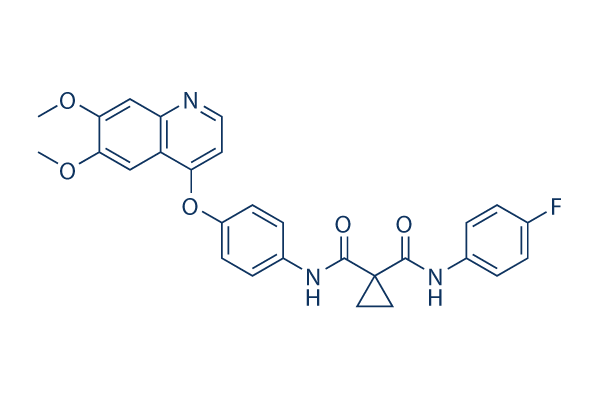Products
Cabozantinib XL184 849217-68-1
| 1.Inquiries will be replied within 24 hours |
| 2.We could supply various packages as you required |
| 3.To protect the profit of our agents, price will not show on website, please send inquiries to get the price. |
| 4.Fast delivery, goods arrive your office within 3 to 5 days |
| 5.Please click "Inquiry" or "Email" below to get the price |
 |
|
|
||||||
|
C28H24FN3O5 |
|
|||||
|
501.51 |
|
in stock | ||||
|
849217-68-1 |
|
99%+ |
Introduction
Cabozantinib (XL184, BMS-907351) is a potent VEGFR2 inhibitor with IC50 of 0.035 nM and also inhibits c-Met, Ret, Kit, Flt-1/3/4, Tie2, and AXL with IC50 of 1.3 nM, 4 nM, 4.6 nM, 12 nM/11.3 nM/6 nM, 14.3 nM and 7 nM in cell-free assays, respectively.
XL184 has weak inhibitory activity against RON and PDGFRβ with IC50 of 124 nM and 234 nM, respectivey, and has low activity against FGFR1 with IC50 of 5.294 μM. XL184 at low concentration (0.1-0.5 μM) is sufficient to induce marked inhibition of constitutive and inducible Met phosphorylation and its resultant downstream signaling in MPNST cells, and inhibit HGF-induced MPNST cell migration and invasion. XL184 also induces marked inhibition of Met and VEGFR2 phosphorylation in cytokine-stimulated human umbilical vein endothelial cells (HUVECs). Although XL-184 has no significant effect on MPNST cell growth at 0.1 μM, XL184 at 5-10 μM significantly inhibits the MPNST cell growth.
XL184 has weak inhibitory activity against RON and PDGFRβ with IC50 of 124 nM and 234 nM, respectivey, and has low activity against FGFR1 with IC50 of 5.294 μM. XL184 at low concentration (0.1-0.5 μM) is sufficient to induce marked inhibition of constitutive and inducible Met phosphorylation and its resultant downstream signaling in MPNST cells, and inhibit HGF-induced MPNST cell migration and invasion. XL184 also induces marked inhibition of Met and VEGFR2 phosphorylation in cytokine-stimulated human umbilical vein endothelial cells (HUVECs). Although XL-184 has no significant effect on MPNST cell growth at 0.1 μM, XL184 at 5-10 μM significantly inhibits the MPNST cell growth.






